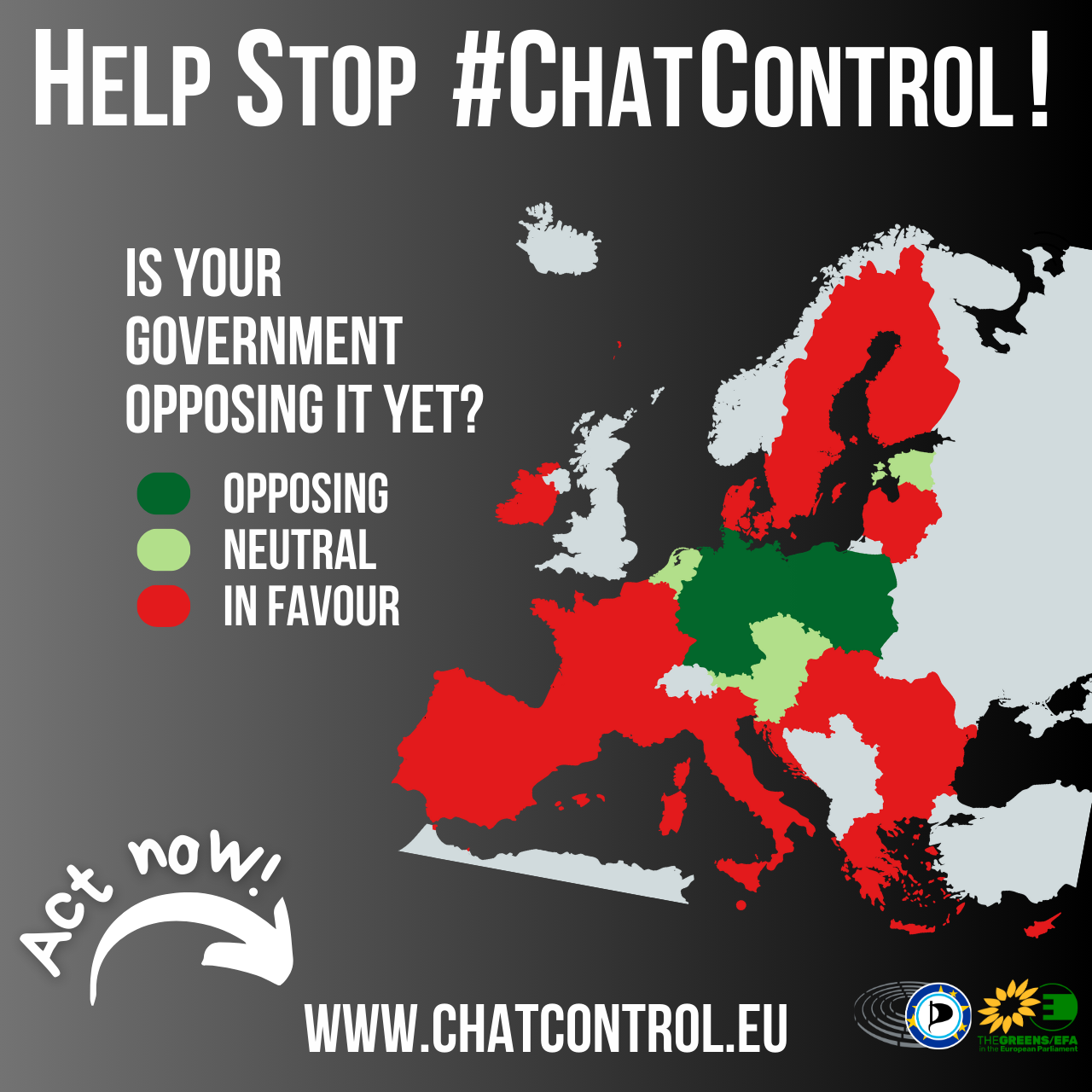Please spread: Open letter on proposed barring of the German Pirate Party from European Parliament
Please spread today’s open letter to Mr Loones.
More information:
- Belgium is the only EU member state that is at odds with the adoption of a European law that regulates the 2019 elections. N-VA vetoes the electoral threshold contained therein.
- Agenda for Council session on Tuesday
- Proposed wording (old leaked text)
Open letter: Please uphold veto on proposed compulsory thresholds for EU elections
Dear Mr Loones,
from the perspective of the German Pirate Party, whose only MEP Julia Reda was elected with 1.4% of the vote, your position to veto the compulsory threshold for EU elections as pushed for by German major parties as a matter of principle is extremely valuable and important.
Please uphold your veto and do not agree to a “deal”. The EU can have the reform in time by abstaining from imposing compulsory thresholds. Even without any reform of the Electoral Act, the elections would not be impeded.
Some arguments to support your position:
1) Less democracy, less legitimacy: Compulsory thresholds would undermine the European Parliament’s objective of enhancing its democratic legitimacy (Preamble B and E of the 2015 Resolution) and broadening its composition by excluding minority and independent candidates.
Thresholds would make a number of interesting voices disappear from the debate. It would void ten thosands of votes for minority and independent candidates.
For example Julia Reda (the only Pirate Party MEP) has been voted one of the most influential MEPs with regard to Internet policy. She is vice president of the GUE/Verts group and was EP rapporteur on the copyright dossier.2) Illegality: The proposal to introduce an obligatory threshold in European elections is at odds with the principle of proportionality set out in EU law, as well as the principle of subsidiarity.
3) No need for harmonising thresholds: Six chambers of four Members States have submitted formal reasoned opinions on the proposed reform of the Electoral Act. Five further chambers of four Member States submitted political contributions, which expressed criticism of non-compliance with the principle of subsidiarity, or of overstretching the legal basis on which the act is to be adopted. There is simply no need for harmonising thresholds.
3) No consensus: 13 EU member states (Belgium, Cyprus, Denmark, Spain, Estonia, Finland, Ireland, Luxembourg, Malta, the Netherlands, Portugal and the United Kingdom) do not currently have electoral thresholds. The evident varied practice of Member States and their differing political and electoral circumstances suggests that this is a matter best decided at national level.
Only MEPs from the EPP, the Socialists & Democrats, and ALDE have voted in favour of the EPs proposal.4) Dangerous precedent: While the provision would initially only apply to large constituencies, it is a worrying precedent. Even if most EU member states would not be directly affected by the specific proposal, a compulsory threshold at EU level would set a dangerous precedent for national elections.
5) Court decisions: The German Constitutional Court (Bundesverfassungsgericht) has repeatedly annulled German attempts to exclude minority and independent candidates from EU elections by way of thresholds: “the serious interference with the principles of electoral equality and equal opportunities which the three-percent threshold entails cannot be justified,” the Court held. It is illegitimate for major German parties to attempt to circumvent this jurisprudence by way of the EU.
https://www.bundesverfassungsgericht.de/SharedDocs/Pressemitteilungen/EN/2014/bvg14-014.html5) Functioning not impeded: Contrary to the proposal thresholds are not needed to maintain the functioning of political processes in the European Parliament. As the Bundesverfassungsgericht pointed out, it is not to be expected that the lack of a threshold could lead to an impairment of the functioning of the European Parliament. In view of the integrating power of parliamentary groups, it is not apparent that new parliamentarians from smaller parties refrain from joining one of the established parliamentary groups, or a newly created parliamentary group.
Thresholds as proposed might bring the number of parties represented in the European Parliament from currently 206 to maybe 180, which would not really make a difference.6) The implicit objective of excluding far-right parties cannot be archieved by way of thresholds. Right wing parties such as the German AfD exceed thresholds of 2-5% by far, whereas a threshold would mostly exclude left wing and center parties (in Germany: Freie Wähler, Pirate Party, Animal Welfare Party/Tierschutzpartei, Family party/Familienpartei, Satirical Party/Die Partei, Ecological Party/ÖDP and only one minor right-wing party NPD).
Could you please let me know the current state of play?
What is the exact wording currently proposed in regards to thresholds?
Yours sincerely
Patrick Breyer



Kommentare
Please spread: Open letter on proposed barring of the German Pirate Party from European Parliament http://www.patrick-breyer.de/?p=572659